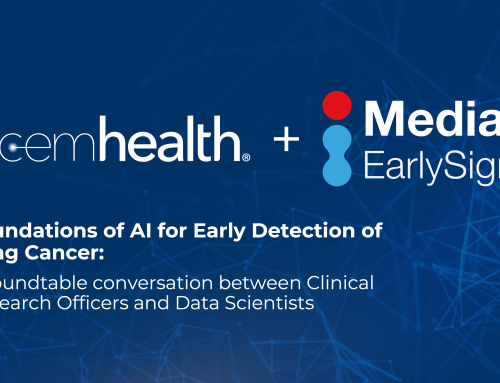
Top Challenges for Clinical Model Deployment: Part 2
Clinical Trust: the next hurdle for AI in Healthcare
It’s safe to say that most people don’t understand how artificial intelligence (AI) generates insights or recommendations. And for everyday use cases, they don’t really need to. Trusting a Google search result or YouTube recommendation is convenient and relatively inconsequential. But for healthcare professionals—who are trained to follow scientific recommendations backed by hard evidence—that kind of implicit trust is never an option. That’s one key reason why many clinicians tend to be naturally skeptical of AI, especially when it comes to providing quality care for their patients. So in addition to the many technical and logistical challenges facing AI in healthcare, AI model developers also need to address the “people problem” of building trust in AI-powered clinical solutions. Here are a few ways to do that:
1. Focus on results
It’s difficult (or impossible) for anyone without advanced mathematical and algorithmic training to understand exactly how AI generates insights and recommendations. So as you discuss AI with healthcare professionals, avoid getting into the mathematical weeds of exactly how AI models work. Instead, focus on providing real-world examples–backed by hard data–of how AI has directly contributed to positive results and better patient outcomes.
2. Use endorsements to build credibility
Institutional credibility is foundational for progress in healthcare. It’s how the latest research, trends, and tools make their way into everyday clinical applications. Clinicians are more likely to trust an AI model if it’s validated and endorsed by proven medical research organizations and backed by credible data.
3. Communicate
Because most healthcare professionals simply don’t have the deep technical background to understand AI algorithms, it’s essential to open and maintain clear, meaningful lines of communication between clinicians and AI developers. Clinicians need to know that their feedback is being heard and taken seriously by AI developers. And AI model developers need to speak the language of healthcare, so they can communicate the value of their solutions in ways that resonate with frontline clinicians.
Building trust with partners
These strategies may require additional time and resources, but they’re worth the effort. As you work to build AI models and solutions that healthcare professionals trust, it’s important to remember that you don’t have to tackle this alone. With the right partners, you can accelerate the process of building essential relationships and trust with the healthcare organizations and providers you work with.
For example, Lucem Health is working with teams of data scientists, software developers, and IT deployment experts who collectively understand the nuances of building successful, trusted AI models for our complex and skeptical industry. This cross-disciplinary approach–combined with an agnostic AI platform that integrates data, algorithms, applications, and frontline clinical workflows–is designed to foster the broad relationships and create the kinds of practical AI solutions that frontline providers will fully trust and embrace.
